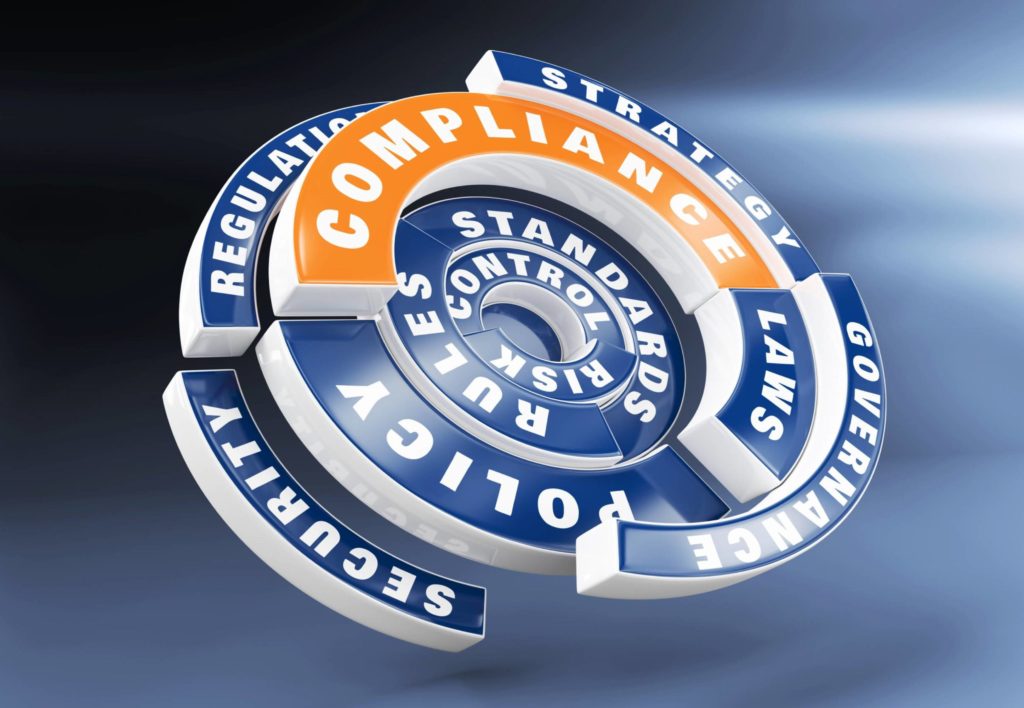When are buying commissions included in transaction value?
Buying commissions are included in the transaction value of the imported merchandise when they are part of the total payment made by the buyer to the seller. This is because the Act does not authorize any deductions from the price actually paid or payable for buying commissions.
For example, the manufacturer bills the importer $100 for the imported merchandise and the importer pays this amount to the manufacturer. This price includes a $5 buying commission which the manufacturer will pay to the buying agent upon receipt of the $100 payment from the importer.
Even if CBP is satisfied that the intermediary is a bona fide buying agent, the total payment made by the buyer to the seller is $100 and no subtraction would be made for commissions the buying agent receives).
When is the intermediary a bona fide buying agent?
The existence of a bona fide buying agent depends upon the relevant factors of the individual case. What needs to be considered is whether the services actually performed by the agent is what the parties agreed to and whether such actions are consistent with a bona fide buying agency.
In order to be considered a bona fide buying agent, the purported agent must be acting on behalf of and primarily for the benefit of the buyer, rather than for the seller or himself/herself. The main factor which determines whether a party is a bona fide buying agent is the right of the buyer to control the agent’s conduct with respect to those matters entrusted to the agent. The buyer should control the purchasing process and the buying agent should take directions from the buyer and act upon the buyer’s instructions.
For example, a buying agent usually does not control who the manufacturer is or what is to be purchased. Normally, the buyer makes such decisions and the buying agent carries them out. Also, a buying agent usually does not control the manner of payment and other significant aspects of the purchase.
In-Depth Coverage: Importing Food Products
- What is FDA Food Safety Modernization Act (FSMA)?
- Prior Notice of Imported Foods
- FDA Food Facility Registration
- Risk-Based Preventive Controls for Human Food
- Risk-Based Preventive Control for Animal Food
- Protect Food against Intentional Adulteration
- What is Foreign Supplier Verification Program (FSVP)?
- What is FSMA Produce Safety Rule?
While a buying agent may exercise some discretion, the ultimate purchasing decisions should be made by the buyer and not by the buyer’s agent. The more discretion the purported agent has, the less likely it is that such a person is a bona fide buying agent.
Some factors considered by the courts which go to the main issue of “control” are:
- which party bears the risk of loss for lost or damaged merchandise? (generally, a buying agent does not bear the risk of loss);
- who absorbs the cost of shipping and handling? (buying agents generally do not absorb such costs);
- which party controls the manner of payment for the goods? (generally, a buying agent would not control how and when the seller is paid);
- could the buyer purchase from the manufacturers without using the services of the agent (if the answer is no, the agent may be a selling agent);
- was the intermediary operating an independent business primarily for its own benefit? (if the answer is yes, it is possible that the intermediary is not an agent but an independent seller);
- is the intermediary financially detached from the manufacturer or seller? (if not, it is possible that the intermediary may not be acting on behalf of the buyer, but on behalf of the seller);
- what do the commercial documents show? (e.g., how are the parties referred to in the commercial documents; is there a buying agency agreement; is there a purchase agreement and if so, who are the parties thereto).
In many cases, a written buying agency agreement is entered into between the buyer and the buying agent which outlines the responsibilities of each party and sets forth the amount of commissions that are to be paid. In such a case, the terms of the agreement should be reviewed to see whether they are consistent with a buying agency and whether the purported agent is actually performing the functions as provided in the agreement.
The totality of the evidence must be examined in order to determine whether there is a bona fide buying agency. The bottom line: does the evidence prove that the buyer is the party in control and that the purported agent is working for the buyer and not the seller or himself/herself?
In-Depth Coverage: Importing Cosmetics
What are some indications that the intermediary is not a bona fide buying agent but rather an independent seller?
In some cases an intermediary may not be functioning as an agent at all, but rather as an independent buyer/seller. In such a case, the amount that is referred to as the buying commission may actually be the intermediary’s mark-up or profit which would constitute part of the total price paid by the buyer and part of the transaction value.
Some indications would be that the intermediary operates an independent business primarily for its own benefit, that it has unlimited discretion regarding the purchase of the goods from the seller, that the purported buyer and seller have no direct contact, and that the intermediary obtains title to the goods.
Who has the burden of proof to establish the existence of a bona fide buying agency?
The importer has the burden of proving the existence of a bona fide buying agency relationship. Absent sufficient proof, commissions paid by the importer will be included in the transaction value of the imported merchandise.
In-Depth Coverage: USDA-Regulated Products
- Importing USDA-Regulated Food Products
- Import Regulation by USDA Agricultural Marketing Service (AMS)
- Food Products – FDA or USDA Regulated
- Country of Origin Labeling
- Importing Animals, Animal Products, and Biologics into the US
- Importing Meat, Poultry, and Egg Products into the US
- Labeling and Marking of Imported Meat, Poultry, and Egg Products
- USDA National Organic Program (NOP)
- Agricultural Safeguards and USDA Licensing
What happens if the importer does not prove the existence of a bona fide buying agency?
Where an intermediary is involved in the import transaction and the importer cannot establish its role as a bona fide buying agent, depending on the facts presented, the intermediary will be considered either a selling agent or an independent seller. An importer who declares commissions as non-dutiable buying commissions without the evidence to back up its claim would not be exercising reasonable care and may be subject to penalty or other enforcement compliance action.
What if the intermediary performs services on behalf of both the buyer and the seller?
Since a buying agent is supposed to be acting on behalf of the buyer and in the best interests of the buyer, it is more difficult to show that the intermediary is a bona fide buying agent when it is also performing services on behalf of the seller. While this fact does not automatically preclude the intermediary from being considered a bona fide buying agent, it will require closer scrutiny of the transaction.
A bona fide buying agency relationship is not precluded if the services performed by the intermediary are primarily for the benefit of the buyer, the services provided the seller are limited in scope, and the intermediary informs the buyer about the nature of the services to be performed for the seller and the amount of compensation to be received.
Guidance on customs & logistics solution for traditional and e-commerce importers and exporters
Customs Clearance
All goods imported into the U.S. are required to be declared to CBP. Our customs broker will help you stay in compliance with customs laws and regulations and clear your goods quickly and efficiently with our electronic Automated Commercial Environment (ACE) and Automated Broker Interface (ABI) Single Window System.
Freight Forwarding
Looking for a freight forwarding partner? To move your cargo from its current location through customs to its final destination we will partner with you to find the best way for your business. Whatever your transportation, logistics or customs clearance needs, we will do our best to customize a solution for your needs.
Warehousing & Distribution
Our warehouse facility offers great potential for serving as a regional hub with over 145,000 SF storage capacity close to Los Angeles Airport & Los Angeles/Long Beach Sea port. With our extensive experience in freight services, your import/export cargo will be handled quickly and effectively.
E-Commerce
The Internet has made it easy to find and purchase items from almost anywhere in the world. Our e-commerce experts will help you find the right solution for your international transportation, customs clearance, and delivery to your final destination. We also provide value-added repackaging, warehousing and distribution services.
Section 321 Entry
Section 321 entry allows importing free of duty and tax for shipments imported by one person on one day having a fair retail value in the country of shipment not more than $800. We provide our resident and non-resident clients with dedicated ACE eManifest solutions for Section 321 entry of all modes of transportation.
Non-resident Importer Program
If you want to sell your products in U.S. marketplaces, but you are a business owner located outside of the U.S., and do not have an entity or physical presence in the U.S., you need to be established as a Foreign Importer of Record before your goods can be imported into the U.S. We can help you.
Importer Security Filing (ISF)
An ISF is required when cargo (ocean only) laden on vessel at a foreign port is destined for shipment to the U.S. Under ISF rule, some importing information and details regarding cargo must be transmitted to the CBP at least 24 hours before goods are loaded onto the vessel.
Customs Clearance and Import Requirements
- Entry of Imported Merchandise
- What is Section 321 Entry?
- What is Automated Commercial Environment (ACE)
- What is an Automated Broker Interface (ABI)?
- Who is Ultimate Consignee?
- What is Non-Resident Importer Program?
- Country of Origin of Imported Merchandise
- What is the Country of Assembly?
- What if the FDA's Country of Manufacture?
- Marking of Country of Origin on U.S. Imports
- What is Customs Bond?
- Reconciliation Prototype and Bond Rider
- Who Needs a Customs Broker?
- What is Customs Ruling Program?
- Classification of Imported Goods
- How is imported merchandise appraised?
- What are Import Quotas?
- What are Trade Remedy Duties?
- Antidumping Duty (AD) and Countervailing Duty (CVD)
- What is Foreign Trade Zone (FTZ)?
- What is Importer Security Filing (ISF)?
- What is Temporary Importation under Bond (TIB)
- What is In-Bond Process?
Quick Link To U.S. Customs & Import Requirements
FDA-Regulated Products and Import Requirements
- What is Food Safety Modernization Act (FSMA)?
- Prior Notice of Imported Foods
- Food Facility Registration
- Risk-Based Preventive Controls for Human Food
- Risk-Based Preventive Control for Animal Food
- Standards for the Growing, Harvesting, Packing, and Holding of Produce for Human Consumption
- What is Foreign Supplier Verification Program (FSVP)?
- Protect Food against Intentional Adulteration
- FDA Regulated Product in Foreign Trade Zone (FTZ)
- Entry Review Process for FDA Regulated Products
- Country of Origin VS Country of Manufacture
- Foods Regulated by FDA or USDA: What is the Difference?
- Label and Labeling Claims for Conventional Food and Dietary Supplements
- What is USDA Country of Origin Labeling (COOL)?
- Import for Export of FDA Regulated Products
- FDA Regulated Products in Personal Baggage or Sending by Mail or Courier
- International Mail Facility (IMF) and FDA Regulation
- Importing Biological Product Regulated by CBER
- Importing Cosmetics and Voluntary Cosmetic Registration Program (VCRP)
- Importing Drugs into the U.S.
- Importing OTC Drugs into the U.S.
- Importing Veterinary Drugs into the U.S.
- Importing Tobacco Products into the U.S.
- Importing Medical Devices into the U.S
- Importing Food Products into he U.S.
- Importing Radiation-Emitting Products into the U.S.



















